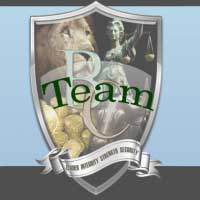Posted On: 09/09/2015 10:59:33 AM
Post# of 16816

This is what keeps me encouraged on Matt and Baron...found this on ScamHub:
Matt is holding up to the business description he posted in 2012 listed below for a refresher.
Since that description Matt and Baron have done exactly what the company was designed to do. Matt has helped TGGI, RIGH and his most successful client to date, WOGI!
For those that say Baron is a scam or Matt hasn't done anything, can you please explain to me why World Oil Group owed them $162,000? That debt resulted in WOGI issuing 52,000,000 shares to Baron. Proof can be viewed here on page 12: http://www.otcmarkets.com/financialReportView...;id=143098
Matt is doing exactly what he said he would. Unfortunately, his communications skills are lacking.
Baron Buisness Description from 2012:
Baron Capital was created to service small-cap markets, valued at over $100 billion dollars through the OTC market on an annual basis, but Wall Street is backing away.
Over the past several years, regulatory changes that were meant to help protect investors have caused small-cap companies to hit a wall when attempting to raise capital.
Here are a few facts most investors do not know:
Online trading firms do accept penny or subpenny stocks to be deposited into your account either by certificate or electronically.
Mainstream firms on Wall Street do not accept subpenny stocks and will only accept penny stocks if you have large cash balances on deposit ranging from $500,000 to over $1,000,000.
Some firms no longer accept stock certificates at all.
Depository Trust Clearing Corporation (DTC) is the only entity with the power to make securities DTC eligible and move through their electronic system, known as DTC FAST or DWAC.
DTC does not approve subpenny stocks and approves very few penny stocks.
Currently there are less than a handful of clearing houses that will accept penny stocks or subpenny stocks and more stop taking them every day.
Those that do accept these stocks have restrictions on the amount of shares they will carry in-house and may also enforce sale limitations.
The new and ongoing stumbling block has been the regulation placed on the small-cap market in general. Through these obstacles millions of dollars have been lost attempting to get certificates cleared, and the problems have become more serious since the fall of 2009.
Matt is holding up to the business description he posted in 2012 listed below for a refresher.
Since that description Matt and Baron have done exactly what the company was designed to do. Matt has helped TGGI, RIGH and his most successful client to date, WOGI!
For those that say Baron is a scam or Matt hasn't done anything, can you please explain to me why World Oil Group owed them $162,000? That debt resulted in WOGI issuing 52,000,000 shares to Baron. Proof can be viewed here on page 12: http://www.otcmarkets.com/financialReportView...;id=143098
Matt is doing exactly what he said he would. Unfortunately, his communications skills are lacking.
Baron Buisness Description from 2012:
Baron Capital was created to service small-cap markets, valued at over $100 billion dollars through the OTC market on an annual basis, but Wall Street is backing away.
Over the past several years, regulatory changes that were meant to help protect investors have caused small-cap companies to hit a wall when attempting to raise capital.
Here are a few facts most investors do not know:
Online trading firms do accept penny or subpenny stocks to be deposited into your account either by certificate or electronically.
Mainstream firms on Wall Street do not accept subpenny stocks and will only accept penny stocks if you have large cash balances on deposit ranging from $500,000 to over $1,000,000.
Some firms no longer accept stock certificates at all.
Depository Trust Clearing Corporation (DTC) is the only entity with the power to make securities DTC eligible and move through their electronic system, known as DTC FAST or DWAC.
DTC does not approve subpenny stocks and approves very few penny stocks.
Currently there are less than a handful of clearing houses that will accept penny stocks or subpenny stocks and more stop taking them every day.
Those that do accept these stocks have restrictions on the amount of shares they will carry in-house and may also enforce sale limitations.
The new and ongoing stumbling block has been the regulation placed on the small-cap market in general. Through these obstacles millions of dollars have been lost attempting to get certificates cleared, and the problems have become more serious since the fall of 2009.
